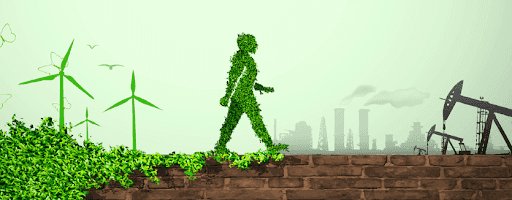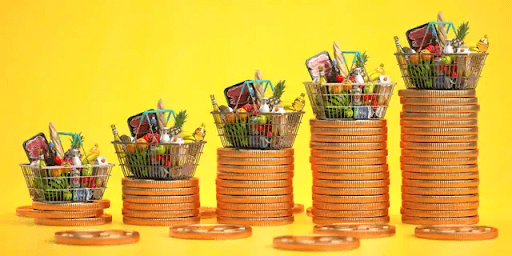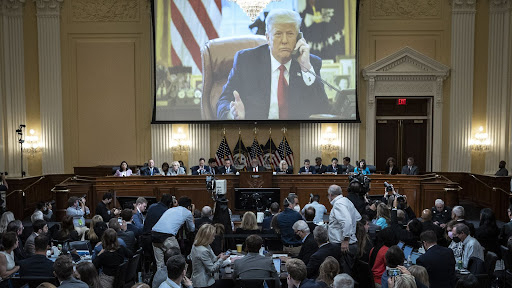The EU’s green energy vote

Image: ElectricRate
On Wednesday, the EU voted 328-278 in favor of classifying some natural gas and nuclear energy projects as “green” in order to allow them to access hundreds of billions of euros in cheap loans and state subsidies.
⚡️ A deeper dive… The groundwork for this vote was laid in February, 22 days before Russia invaded Ukraine, when the approved plan was initially proposed by the EU.
- At the time, the European Commission argued that natural gas is a key part of the global transition towards renewable energy and away from more polluting fossil fuels like coal.
- Critics contended that more focus should go towards boosting renewable projects, rather than supporting ones that prolong the use of fossil fuels.
🇪🇺📈 Big picture: The price of natural gas in Europe has risen ~700% since the start of last year, as countries around the world lifted Covid restrictions and fully reopened their economies, boosting global demand (and prices).
- As a result, energy companies across Europe are finding it nigh impossible to operate under local laws limiting how high bills can rise. France’s government announced the nationalization of the remaining 16% of its largest power company yesterday, Germany this week moved to bail out domestic gas utilities, and Norway’s government on Tuesday intervened to stop a worker strike that threatened to cut the country’s gas exports by nearly 60%.
🇷🇺🇺🇦 The Russia/Ukraine impact: Around 40% of Europe’s gas was imported from Russia in 2021. Due to the war in Ukraine, the bloc is planning to cut ⅔ of Russian gas imports by the end of this year and all imports by 2027.
Should the EU have voted yes? See the 360° view →

Sprinkles in favor of the EU's new labels
Some commentators acknowledge that natural gas is a polluting fossil fuel, which is less than ideal, but argue that it’s still better than the alternative of producing energy with coal.
- Others contend that the EU’s new rules will serve as a boost to its struggling nuclear sector, which is a renewable energy option that could prove vital to replacing Russian fossil fuels.
“Many observers also believed that demand for oil had peaked in 2019 and would quickly be replaced by renewables. Depressed demand during Covid lockdowns seemed to validate that assessment. An energy transition was thought to be well on its way, facilitated by a wide range of government policies.
Yet that perception ran up against reality. Demand for oil and gas bounced back as lockdowns ended and economies rebounded. The global energy supply couldn’t keep up, owing in large part to underinvestment in conventional energy sources…
And so nations that previously paid little attention to energy security have been forced to search urgently for reliable alternative supplies. Europe is reupping its already ambitious commitment to wind and solar, but it seems to recognize that those additions at scale take some time and solve only part of the problem. A transition to renewable energy and electric cars won’t happen without energy security, which, at least for the next several decades, necessitates access to a diverse and reliable array of energy sources…
The global mismatch between demand and available supply for oil and natural gas is precarious. It will likely get worse over the next few months as Mr. Putin steps up his energy war, China’s demand increases as it comes out of Covid shut-ins, the dislocations in the global-supply system increase, and the tight balance between supply and demand tightens even further.”
“Natural gas has long been described as a “bridge fuel,” because it has the potential to reduce dependence on or displace entirely conventional fossil fuels that produce far more greenhouse gas emissions. This one-time waste product that was routinely burned off has become a staple of the global energy diet as a result of new extraction technologies. The environmental results of this revolution are measurable. “Since 2010, coal-to-gas switching has saved around 500 million tons of CO2,” the International Energy Agency confirms, “an effect equivalent to putting an extra 200 million EVs running on zero-carbon electricity on the road over the same period.”
The fact that natural gas produces fewer emissions and can therefore serve as a “bridge” to a greener future frustrates green activists to no end. We might attribute this hostility to zeal for the cause of environmental preservation if they weren’t just as gung-ho in their efforts to anathematize turbine-generated power produced by steam heat resulting from a controlled fission reaction. The activist class’s failure to make prudent and empirical distinctions between these two energy sources allowed the E.U. to lump them together—first, as unclean fuels and, now, as sources of “green” energy…
The fragile construct that allowed the Continent to pretend it wasn’t dependent on fossil fuels melted away upon first contact with the Hobbesian reality of geopolitics.”

Sprinkles against the EU's new labels
Many critics contend that world leaders can’t afford to kick the can down the road anymore when it comes to fossil fuels – the planet needs to take swift action to cut tons of emissions ASAP before it’s too late, if it isn’t already.
- The arguments against nuclear energy usually center around safety, including how to store the highly-radioactive waste it produces; these projects also tend to be costly and can take decades to build.
“The most recent delegated act… includes fossil gas in the “environmentally sustainable (green)” category and introduces several exemptions to the 100g CO₂ e/kWh threshold.
This does not only go against the initial thinking behind the EU taxonomy to create a science-based transparency tool but also risks slowing down the EU’s much needed and urgent transition away from fossil fuels. The continuing devastation in Ukraine has reminded us once again that our overdependence on volatile, imported fossil gas, oil and coal is at the heart of today’s climate, energy and geopolitical crises. Now more than ever, the EU needs to provide a strong signal that fossil fuels will not be awarded or protected…
On top of it, a taxonomy that includes fossil gas in the sustainable category risks polluting public funding. A significant part of EU funds, such as Recovery Funds, already make reference to key taxonomy principles (Do no significant harm criteria), and many Member States have started using the taxonomy principles for domestic investment instruments. In an only worsening energy and climate crises, it is to the detriment of household energy bills and the environment that the EU allows billions of euros to be diverted away from green technologies, like wind and solar, to fossil fuels under this new ‘green label’.
As the European Parliament and the Council of the EU define their positions on the taxonomy, businesses and investors expect to see that EU leaders stick to their commitments to follow the science and to transition away from the fossil fuels which are at the centre of the geopolitical, energy and climate crises that we are facing.”
“The International Energy Agency, a Paris-based intergovernmental organization, says the world needs to stop all investment in new gas and oil projects from 2021 onwards in order to keep on track to reach net zero emissions by 2050.
So it surprised many when, on Dec. 31, a draft version of the E.U.’s green energy taxonomy—a long-awaited list of investments the bloc considers sustainable for the planet—said that natural gas projects should count as green under certain conditions. (Nuclear energy, which does not emit greenhouse gases but carries other environmental risks, also got a controversial inclusion)...
With the private sector trying to overhaul its spending to meet a deluge of environmental pledges made in recent years, the goal of the taxonomy is to guide money to the right places and hasten the energy transition…
The draft text has sparked fierce backlash from environmentalists across the bloc, who warn that the E.U.’s green credentials for gas—even with conditions attached—will have implications far beyond the natural gas market in Europe, confusing investors around the world and providing cover for the fossil fuel industry in developing countries.”
Share this!
Recent Discussion stories


Discussion
| June 29, 2022The Jan. 6 committee's been busy
🏛 The House select committee investigating the Jan. 6 riot at the US Capitol held a surprise sixth public hearing yesterday “to present recently obtained evidence.”

Discussion
| June 27, 2022Overturned: The Facts + a 360 View
⚖️ In a 5-4 decision on Friday, the Supreme Court overturned Roe v. Wade, a 1973 ruling that provided a constitutional basis for abortion rights.
You've made it this far...
Let's make our relationship official, no 💍 or elaborate proposal required. Learn and stay entertained, for free.👇
All of our news is 100% free and you can unsubscribe anytime; the quiz takes ~10 seconds to complete